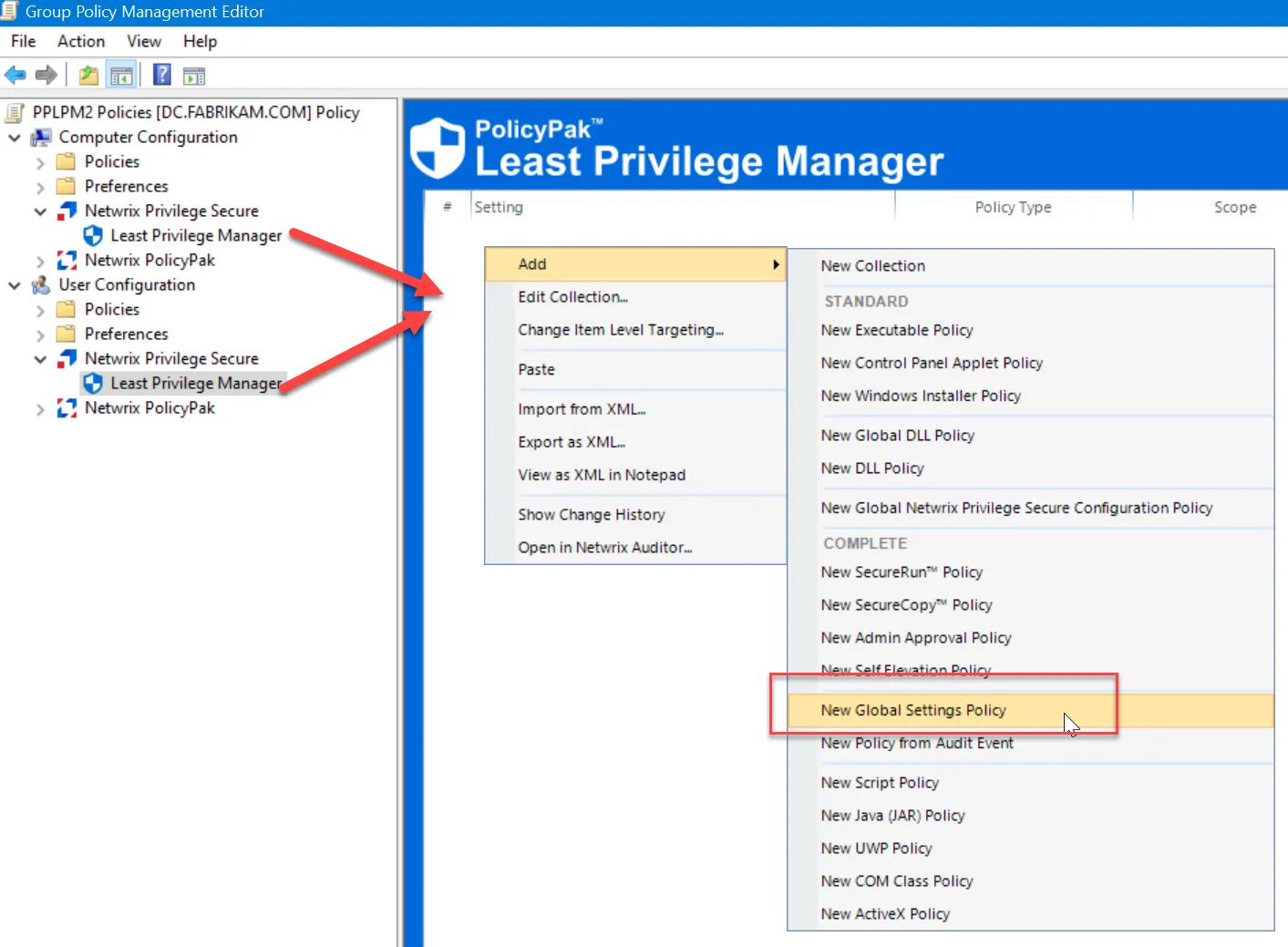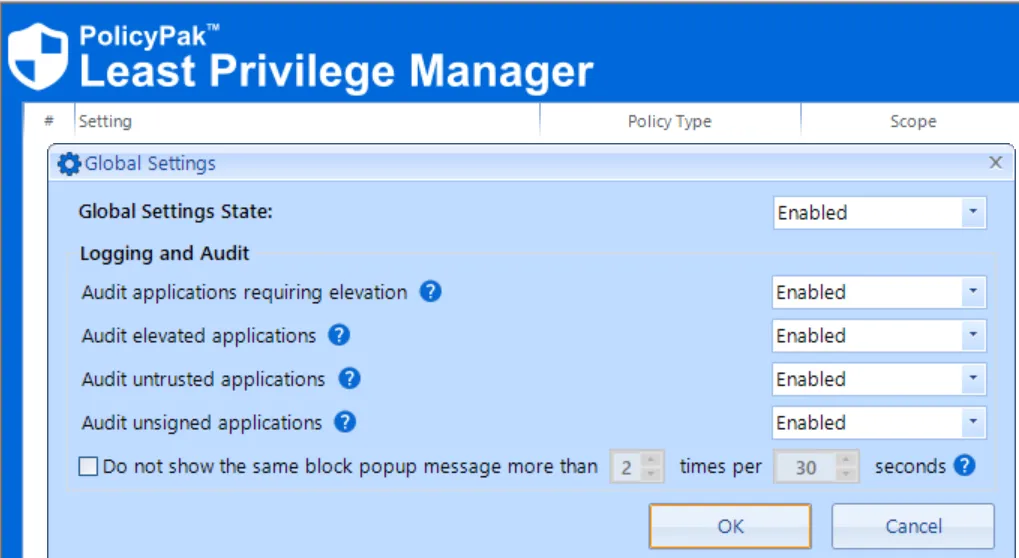Auditing Settings
Using Endpoint Policy Manager (formerly PolicyPak) Least Privilege Manager to remove admin rights or turn on SecureRun™ is going to make your machines more secure. However, that also means that some users might not be able to perform some actions with these two security measures in place. To mitigate this, you may need to do some research to find out just what privileges your users require. Endpoint Policy Manager Global Settings Policy lets you set up auditing to find out what applications require extra privileges from standard users. There are four choices:
- Audit applications requiring elevation - Help you learn, in advance of a transition, which items require rules and what items will need rules to overcome UAC prompts.
- Audit elevated applications - Help you learn, after a transition, which items still need rules to overcome UAC prompts.
- Audit untrusted applications - Help you learn, in advance or after a transition, which items that would be automatically blocked by SecureRun™ are, in fact, blocked by SecureRun™ and will need rules to overcome.
- Audit unsigned applications - Help you learn, in advance or after a transition, which items that would be automatically blocked by SecureRun™ if trapping for unsigned applications.
To begin the discovery process you will add a New Global Settings Policy, which can be done on either user or computer side.

When you create a Global Settings Policy, you can choose to turn on the settings shown here.

Enabling these settings will write special events to the event logs.
- Audit applications requiring elevation - Makes an audit log entry when a process is not elevated, but Endpoint Policy Manager (formerly PolicyPak) Least Privilege Manager sees that it requires elevation. We can detect Applications that specify "require elevation" in the manifest and if the application is a Legacy Installer (that is, a 32-bit app without a manifest and with a keyword—e.g. Install, Setup, etc.—in the file info). It should be noted that Endpoint Policy Manager (formerly PolicyPak) Least Privilege Manager does not support detection of dynamically elevated processes.
- Audit elevated applications - Makes audit log entries for processes that runelevated (i.e., successful runs after applications are elevated). This creates an event, regardless of the reason why the application runs elevated. Examples scenarios for this case could include apps that always require elevation, apps that require elevation only when run by an admin (e.g. regedit), or situations in which a user selected to run a file as an administrator. It should be noted that the only time this setting will not write an event to the event log (as an AUDIT event) is when there is a Endpoint Policy Manager (formerly PolicyPak) Least Privilege Manager rule in place to perform the elevation, in which case it would get its own event ID type.
- Audit untrusted applications - Discovers rules needed when SecureRun™ is turned on. If an application is attempted, but the item’s file owner is not in the SecureRun™ list, then the application will be blocked when SecureRun is turned on.
- Audit unsigned applications - Discovers rules needed when SecureRun™ is turned on and the “Block all unsigned” option would block unsigned applications.
We'll discuss each of these auditing events in the next sections.